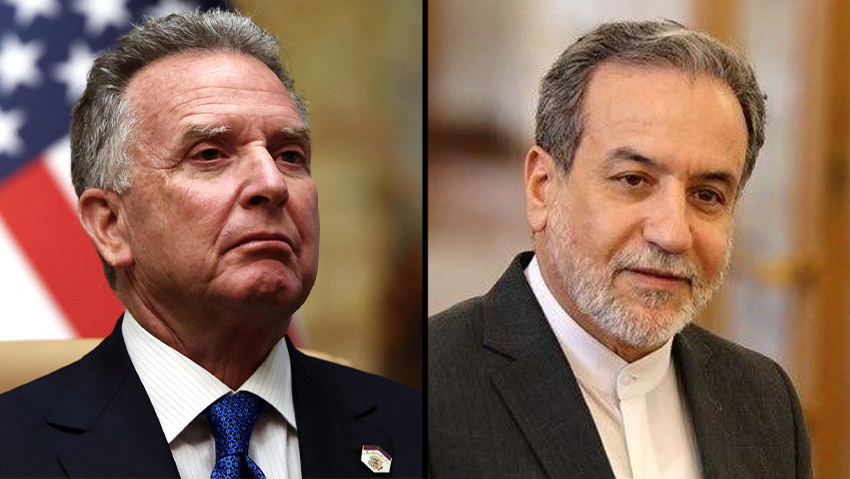NepalIsrael.com auto goggle feed
3 View gallery


Ali Khamenei, Donald Trump
(Photo: Mandel NGAN / AFP, REUTERS/Mohammed Yassin, Iranian Leader’s Press Office, AP)
Though not officially stated, officials in Jerusalem have privately acknowledged that a potential agreement under the current U.S. administration would be viewed as deeply problematic, especially given expectations that Trump will not remain in office beyond his current term.
With Iran reportedly close to possessing the material for six nuclear bombs, Israeli officials worry that a deal now would leave the Islamic Republic dangerously close to breakout capability after Trump’s departure.
Some in Israel quietly hope the talks collapse, potentially paving the way for a credible military option. One of the central concerns is that Trump might prefer a moderate compromise to avoid a direct confrontation with Iran.
Officials are also wary of Iranian Foreign Minister Abbas Araghchi, who is known for his expertise and negotiation skills. There is concern in Jerusalem that he may be able to manipulate the American delegation or stall the talks until Trump loses patience and rushes into a deal.
3 View gallery


US Air Force chief Gen. David Allvin (right) meets with Israeli counterpart Maj. Gen. Tomer Bar (second from left) at the Pentagon
(Photo: from X)
Meanwhile, in a development reflecting the broader regional concerns, U.S. Air Force chief Gen. David Allvin recently met with his Israeli counterpart, Maj. Gen. Tomer Bar, at the Pentagon. The IDF had not previously disclosed Bar’s trip to Washington, suggesting the sensitive nature of the discussions—presumed to focus on military contingencies should diplomacy with Iran fail.
In an interview with The Wall Street Journal prior to the talks, Witkoff said that while the U.S. will not tolerate a nuclear-armed Iran, there is “room for compromise.” He noted that the U.S. position starts with dismantling the nuclear program, but added, “That doesn’t mean we aren’t open to negotiations.”
Witkoff emphasized that if Iran refuses to dismantle its program, the next steps would be left to Trump’s discretion. He described the current talks as a confidence-building effort, aimed at conveying the importance of a deal rather than producing a fully fleshed-out agreement. Any eventual deal, he stressed, would require stringent oversight to ensure Iran is not covertly pursuing nuclear weapons capabilities.
The American draft proposal: no dismantling of Iran’s nuclear program
The first round of indirect nuclear negotiations between the United States and Iran took place Saturday in Muscat, Oman. Although both delegations were housed in the same building, they remained in separate rooms as Oman’s foreign minister shuttled written messages between them. According to Iran’s lead negotiator, four rounds of exchanges took place over two and a half hours, culminating in a symbolic handshake between Araghchi and Witkoff.
Araghchi later posted on Telegram that the talks were conducted in a “positive and constructive” atmosphere. He confirmed that a follow-up meeting is scheduled for Saturday, April 19. While Iran announced Oman would continue to host the discussions, a regional diplomatic source told Amwaj.media that the next round may move to Europe due to logistical considerations.
An Iranian official disclosed that the draft proposal brought by Witkoff to the first round did not include a demand for dismantling Iran’s nuclear infrastructure or any explicit military threat—conditions that had led to the collapse of previous talks. The softer tone helped foster a more constructive environment but raised concerns in Israel about the seriousness of U.S. intentions and the absence of clear red lines.
Trump, whose envoy is leading the talks, commented Saturday night that negotiations were proceeding well. “I think they’re going fine,” Trump told reporters aboard Air Force One. “Nothing matters until you finish it, so I don’t like to talk about it. But it’s going okay. I think the Iran situation is going pretty well.”
Araghchi leaving Oman after nuclear talks with US
Meanwhile, European countries must decide by October whether to invoke the “snapback” mechanism, which would reinstate all UN sanctions on Iran, as originally outlined in the 2015 nuclear deal. Triggering the mechanism could prompt Iran to withdraw from the Nuclear Non-Proliferation Treaty—a move that risks igniting a broader military confrontation.
The post”Israeli officials alarmed over soft US stance in nuclear talks with Iran” is auto generated by Nepalisrael.com’s Auto feed for the information purpose. [/gpt3]







